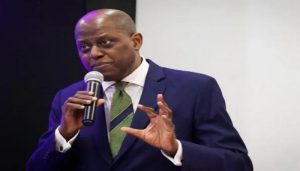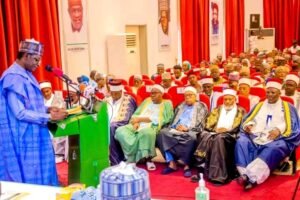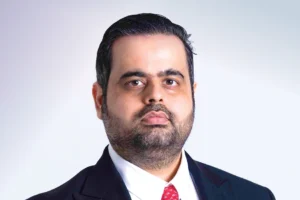
By David Akinmola
Nigeria’s Micro, Small, and Medium Enterprises (MSMEs) are experiencing a fresh wave of support as a strategic alignment between government policies and the country’s expanding impact investment ecosystem.
The renewed focus is breathing new life into the sector, promising sustainable growth and a more inclusive economy that benefits Nigerians at the grassroots level.
For the past few years, MSMEs have contributed significantly to Nigeria’s Gross Domestic Product (GDP), accounting for over 48 per cent of national output and employing more than 80 per cent of the workforce. Yet, limited access to finance. Poor infrastructure and inconsistent regulatory environments have long hindered their potential. Now, with a targeted policy shift, the narrative is changing.
This was a major discussion at the High-Level Roundtable with policymakers and investors, in a pre-event of the 2025 Africa Impact Summit Study Tour to Nigeria organised by the Impact Investors Foundation (IIF), Impact Investing Ghana, GSG Impact, Alitheia Capital, and Kuramo Capital held in Lagos.
Stakeholders stressed the government’s critical bridge role in unlocking capital for MSMEs in the country.
Speaking to the development at the programme, the former Permanent Secretary of the Federal Ministry of Budget and Economic Planning and current Permanent Secretary of the Ministry of Petroleum Resources, Dr.Emeka Vitalis, underlined the government’s commitment to fostering economic growth.
He said the vision of the study tour is a testament to Africa being a hub for sustainable development.
Speaking at the fireside chat featured an engaging between two global voices in the impact investing movement, the Chief Executive Officer, GSG Impact, Ms. Elizabeth Boggs Davidsen, the Chair of GSG Nigeria Partner, Mrs. Ibukun Awosika, and the Vice Chair of GSG Impact, Ms. Davidsen, shared insights from her decades-long career spanning leadership roles at the United Nations and the Inter-American Development Bank, highlighting key moment that inspired her pivot to impact investing.
She said that GSG Impact’s mission is to strengthen national partner networks in Africa and Asia, support the development of strong secretariats, design innovative policy tools, catalyse investment vehicles, and crowd in private capital to advance inclusive economies.
The discussion also underscored Africa’s role in sustainable development, with Ms. Davidsen affirming GSG Impact’s commitment to fostering partnerships across the continent and advocating for impact economies that prioritise people and planet alongside profit.
A dynamic panel moderated by the Market Development Manager at GSG Impact, Ms. Atieno Otonglo, experts explored how impact capital can drive growth across diverse sectors and discussed the Nigeria Wholesale Impact Investment Fund (WIIF), which uses its innovative “ABC” model—Accelerate, Bridge, and Co-Invest, to support first-time fund managers and mobilise private investment for SMEs.
Panellists emphasised the urgent need for local investors in the private sector to invest in Nigerian MSMEs, while also highlighting the importance of de-risking impact funds to attract returns-driven investors.
Panelists also commended Nigeria’s early adoption of the ISSB framework for standardised impact measurement, positioning the country as a leader in impact transparency that other African markets can emulate.
As the session drew to a close, panelists called for deeper collaboration between investors, regulators, and intermediaries to build an ecosystem that is both investor-friendly and impact-driven.
The Chief Executive Officer, of Aruwa Capital, Ms. Adesuwa Okunbo Rhodes, shared her firm’s investment strategy of investing in women-owned businesses with proven management teams, focusing on import substitution and critical sectors, while maintaining active involvement in governance and operations.
The Study Tour featured a tour of impactful businesses in the country, including AfyA Care, which invests in healthcare assets with a vision to make healthcare accessible and affordable; Salpha Energy, a company addressing the huge market need for renewable energy; and SKLD, a technology-enabled manufacturing and sourcing solutions company.






